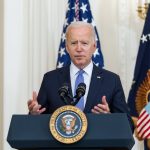In a bold legislative move, Minnesota Senate Republicans have introduced a bill seeking to classify “Trump Derangement Syndrome” (TDS) as a mental illness under state law. The proposal has ignited fierce debate, with supporters arguing that it addresses irrational hostility toward former President Donald Trump and his policies, while critics dismiss it as a politically motivated stunt aimed at discrediting dissent. This latest development underscores the deep cultural and political divisions in America, where even mental health legislation can become a partisan battleground.
The bill defines TDS as the “acute onset of paranoia” in response to Trump’s presidency, citing symptoms such as verbal hostility, overt aggression toward Trump supporters, and an inability to differentiate legitimate policy disagreements from psychological pathology. Republican lawmakers contend that this phenomenon has fueled widespread hysteria in liberal circles, leading to violent protests and unhinged media narratives. They argue that recognizing TDS as a mental health condition could help address the toxicity of political discourse and provide a framework for understanding extreme anti-Trump behavior.
Democrats and other critics have lambasted the proposal, calling it an absurd attempt to weaponize mental health diagnoses for political gain. They argue that the term “Trump Derangement Syndrome” is nothing more than a pejorative used by Trump supporters to dismiss valid criticisms of his presidency. Furthermore, they warn that such legislation risks undermining the seriousness of real mental health issues by politicizing medical definitions. Some have even suggested introducing counter-legislation to classify unwavering loyalty to Trump as a cult-like condition.
This controversy highlights the broader issue of media-driven polarization in American politics. The term “Trump Derangement Syndrome” has long been used by commentators to mock what they perceive as irrational liberal outrage over Trump’s actions. However, critics point out that this narrative often oversimplifies complex policy debates and fuels tribalism. The media’s role in amplifying these divisions cannot be ignored, as partisan outlets frequently frame political opponents as either villains or heroes, deepening societal fractures.
This bill represents an opportunity to push back against what they see as relentless attacks on Trump and his supporters by mainstream media and liberal elites. They argue that the term encapsulates the disproportionate focus on Trump’s every move, often at the expense of substantive policy discussions. By introducing this legislation, Republicans aim to highlight the excesses of anti-Trump sentiment while challenging the media narratives that have dominated political discourse since his presidency.
As this debate unfolds, it serves as a reminder of how deeply entrenched America’s political divisions have become. Whether or not the bill gains traction in Minnesota’s legislature, its introduction reflects the ongoing culture wars shaping public opinion and governance. It is both a critique of liberal hysteria and a call for accountability in how political opposition is expressed. For liberals, it is yet another example of how Republicans use provocative measures to distract from pressing national issues. Regardless of perspective, one thing is clear: America’s political landscape remains anything but unified.




